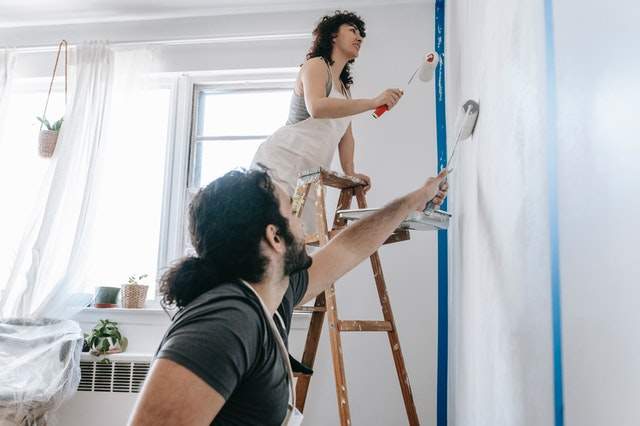Every homeowner wants to do things on their own, which makes sense. Not only do you become more self-sufficient, but you can save money. The problem is that you can’t do everything, and you have to recognize which projects are DIY projects and which aren’t.
Knowledgeable Support
You can do a project on your own if you’ve got someone with you that has some experience. This could be a friend or family member that has done this type of project before. This person might not be a professional, but if the person has done the task, he or she can still be helpful. Having people around who know what they are doing reduces the chances of running into obstacles or making costly mistakes. It also keeps you safe and helps you learn something new.
Unlimited Time
Taking on a project on your own has never been easier, thanks to the web and online videos that help you do a lot of things without professional help. This is great, but if you’ve never done something like repairing your pool heater, for instance, it’s important to give yourself plenty of time. If you don’t have the proper tools or skills to do the job, you will need to look up professional pool heater repairs in Orlando or anywhere in your area. If you don’t have the time, don’t keep putting the task off. Just hire a professional to take care of the project.

Matter of Safety
Another sign that a project should be left to a professional has to do with safety. If you know you don’t know how to mess with something and it’s dangerous, then leave it to the professionals. If you need to mess with your electrical system and don’t know the first thing about the system, then call an electrician. No amount of savings is worth you risking your life or the life of those in your home.
Materials and Tools
Some projects ask you to buy specific tools and materials to get the job done. Some ask you to buy only a few items. For some jobs, you may have most of the items you’ll need. Sometimes, you’re asked to buy an overwhelming amount of items. This could cost you an arm and a leg. If the tools are specialized, you likely won’t need them for other projects. If that’s what’s going on, then it’s best to leave this to the professionals.
Question of Capacity
Capacity is another thing you have to come to terms with. If the job requires you to bend down often and you’ve got a back problem, then it’s obvious that you won’t be able to perform the task. At that point, you’ll have to talk to a professional. Try to be honest with yourself. It may be hard to admit that you can’t physically do certain things other people can do, but you have to. Your safety is on the line.
Admitting Defeat
If you’ve begun the project and you’ve gotten stumped somewhere, it’s time to admit defeat. Don’t think of it as a defeat though. You tried something and gave it your best shot. It isn’t a bad thing to admit that you need help. It’s actually wise to do this. The longer you wait or continue to try things that won’t work, the costlier it’ll be for the professional to fix what hasn’t been repaired.
Rules and Regulations
Sometimes, a project looks relatively easy, but there are a few things you haven’t considered yet. Some projects come with rules or regulations set by the county or state you live in. For example, if you want to install a fence or make some repairs to the existing fence, you’ll probably need a permit. This means you have to know what’s required of you to obtain that permit. The hassle of permits is best left to professionals. They know the rules and regulations and won’t have their permit application denied.
Closing Thoughts
It comes down to knowing your limitations and being honest with yourself. Don’t try to be more than what you are. No one is going to pin a medal of honor on you if injure yourself, so take these suggestions to heart.
 Infographic Portal New Infographics Resource Portal
Infographic Portal New Infographics Resource Portal
